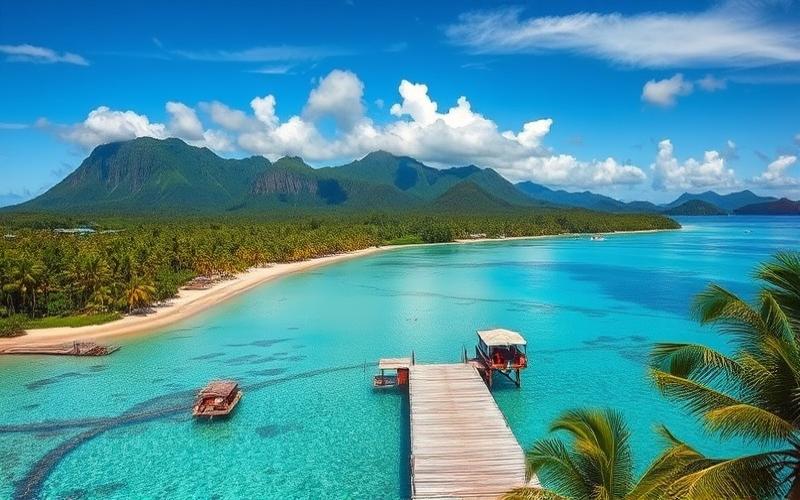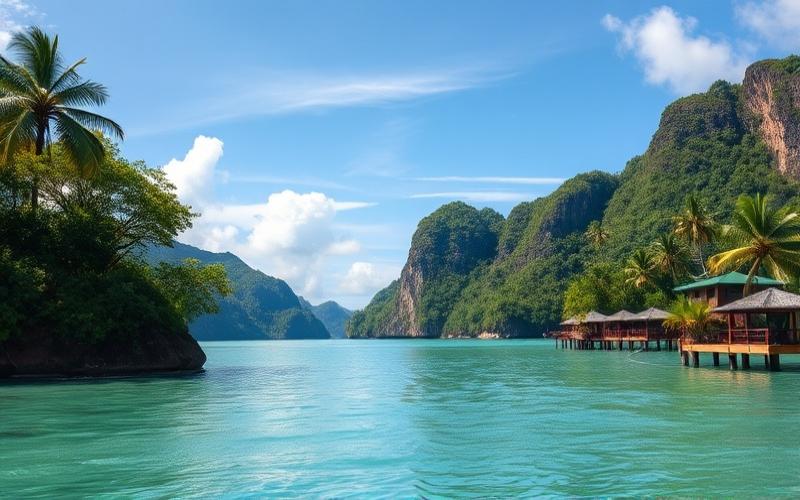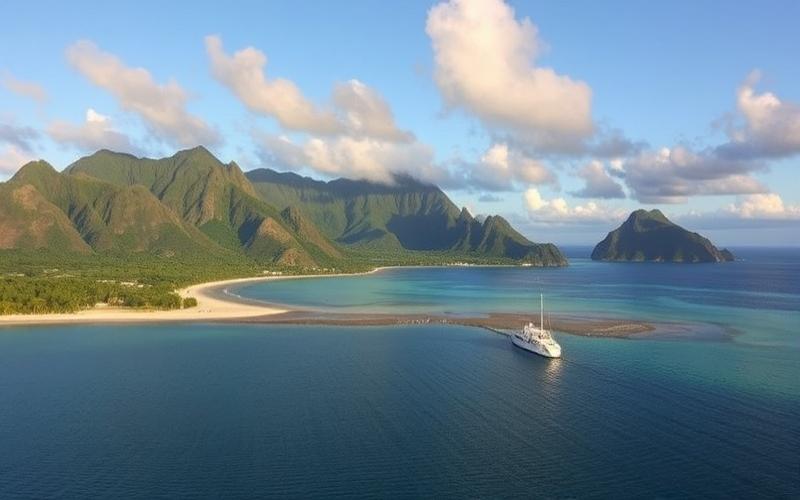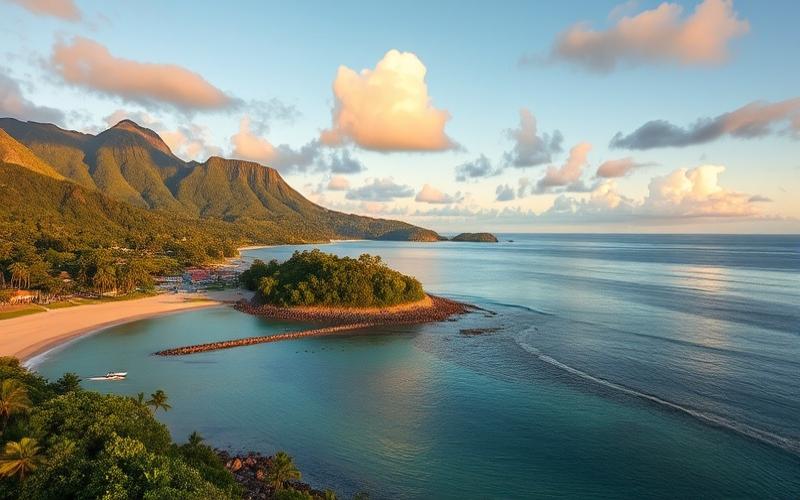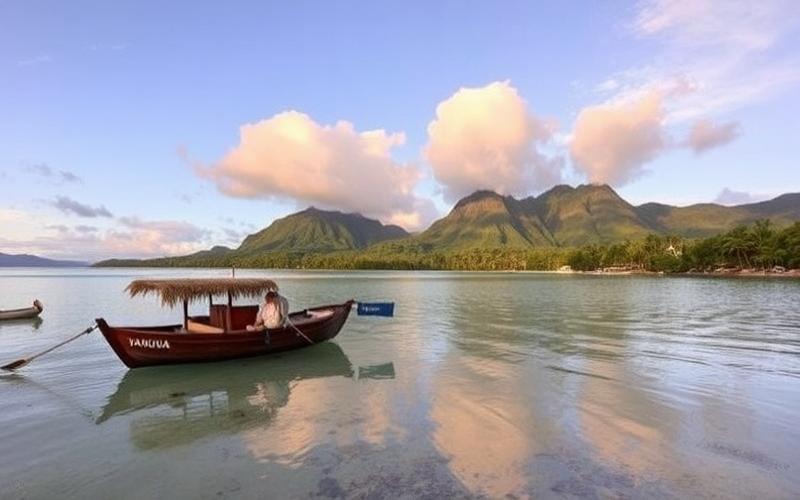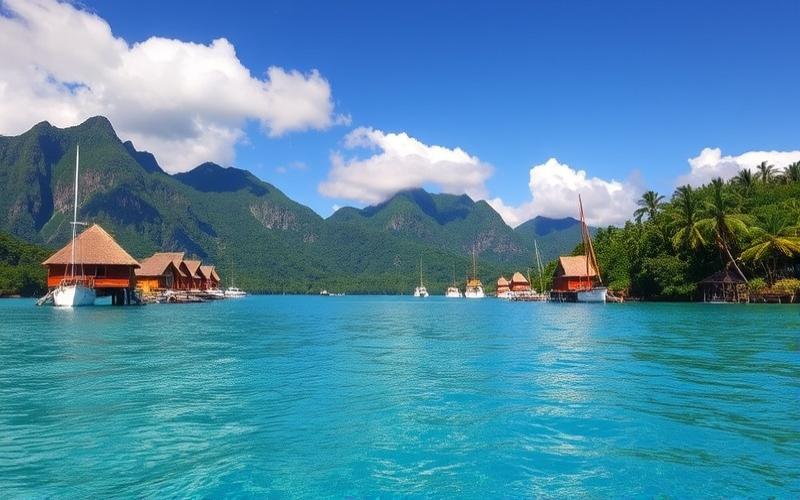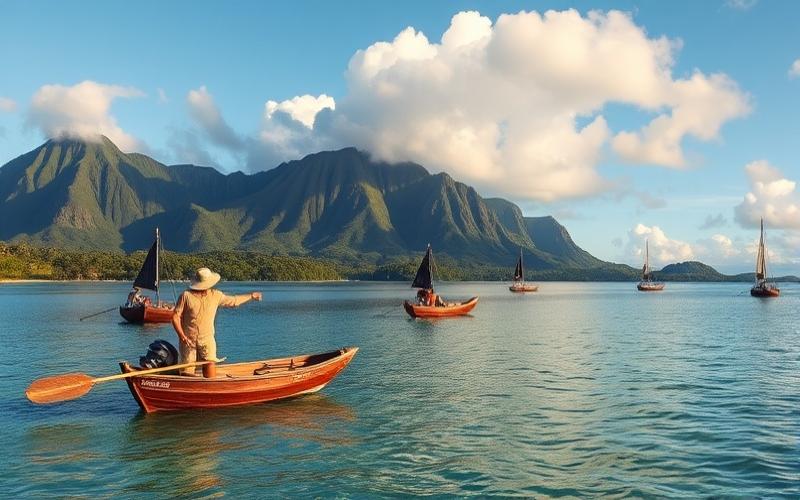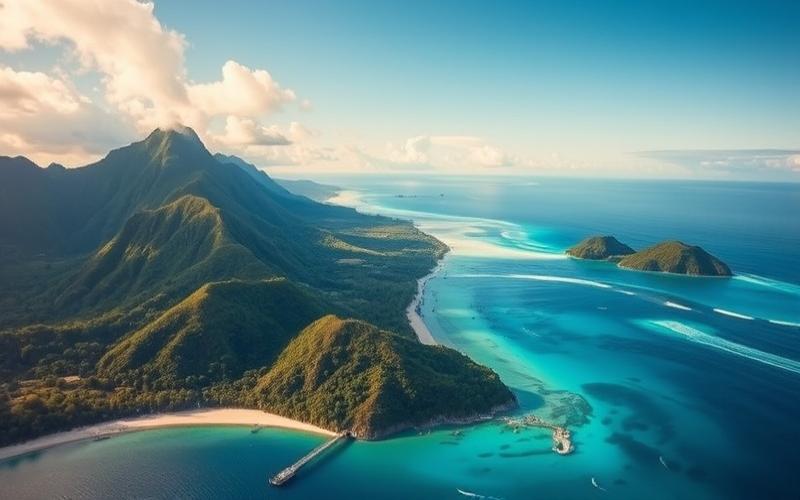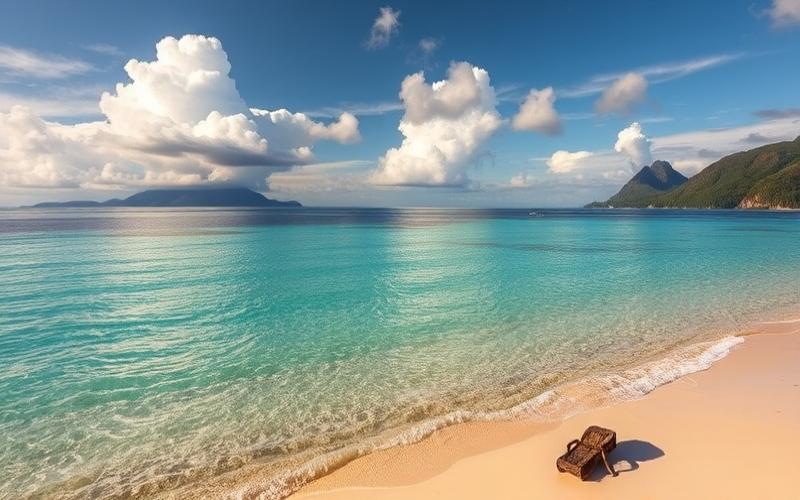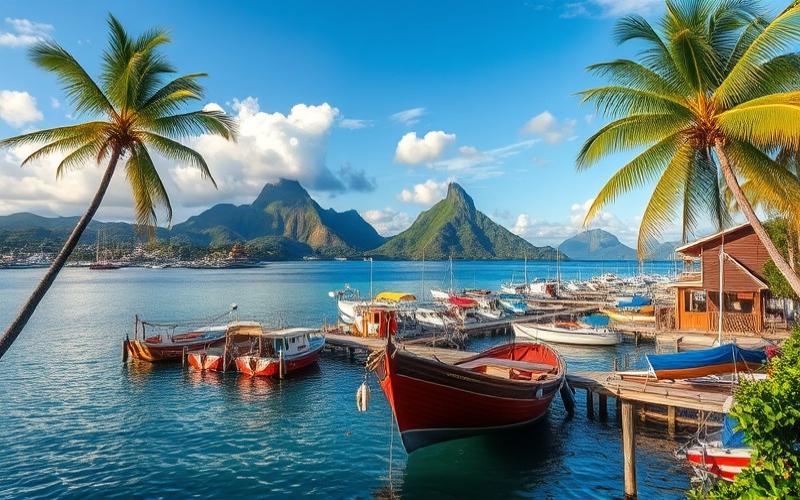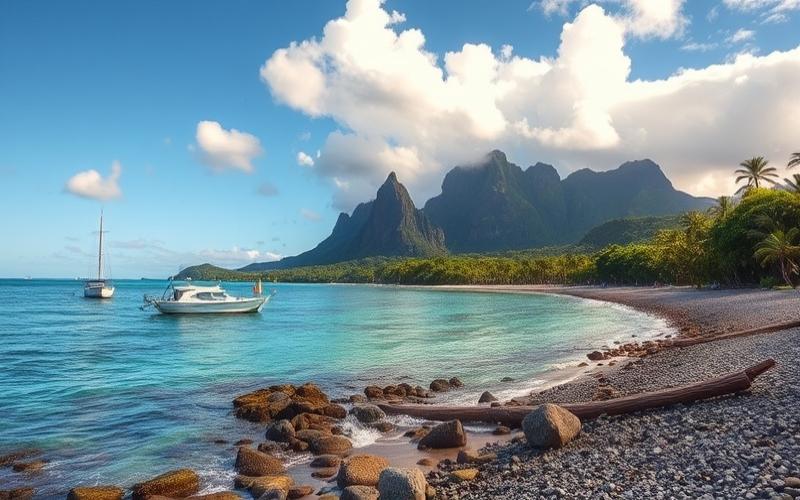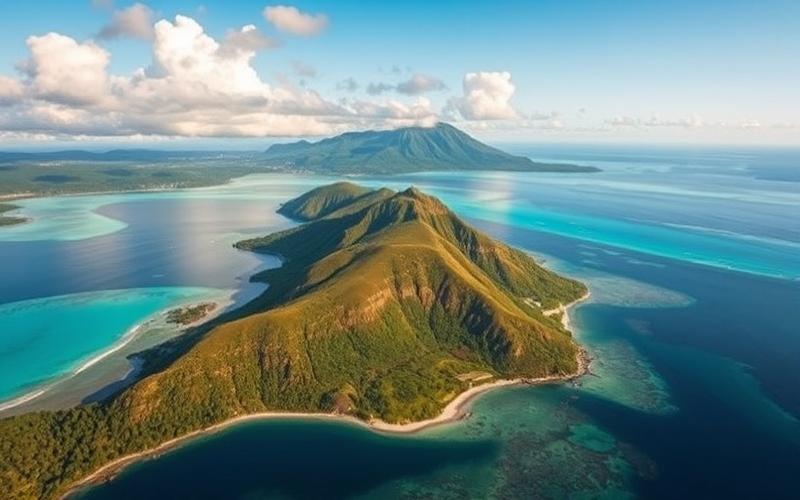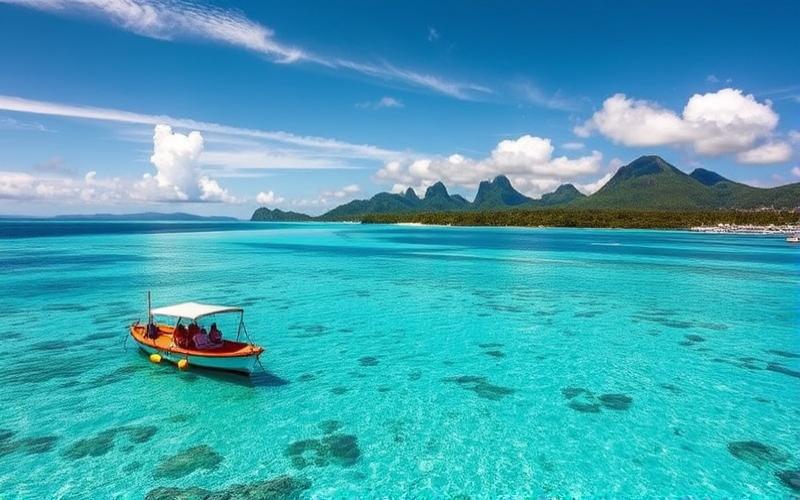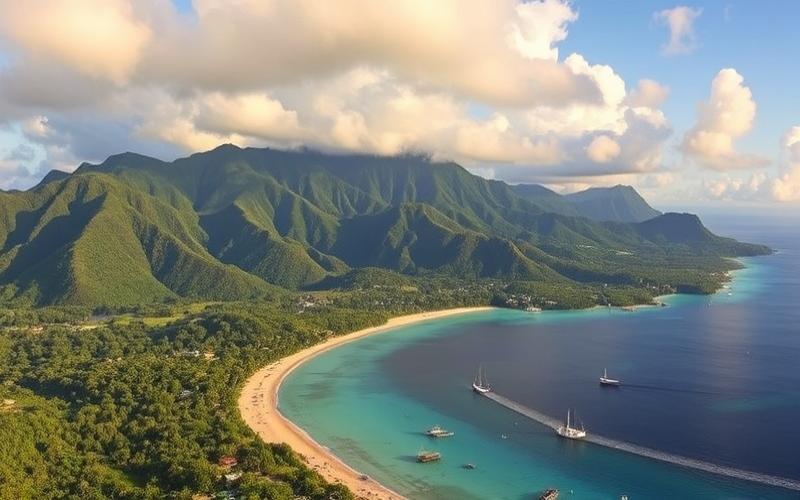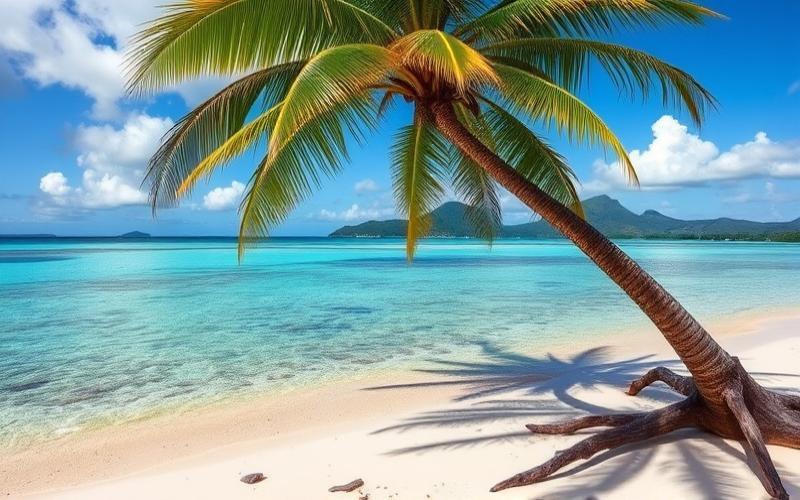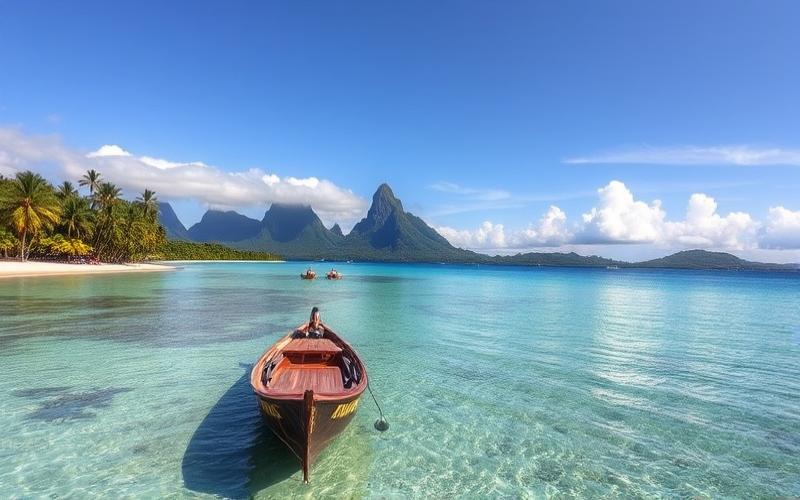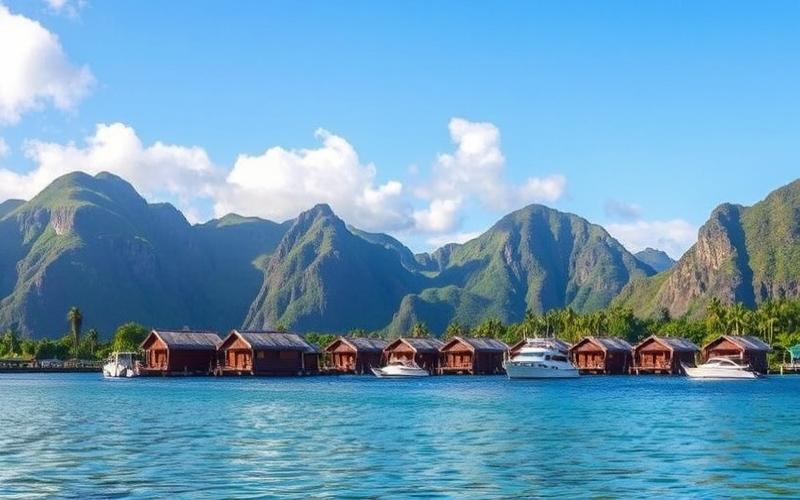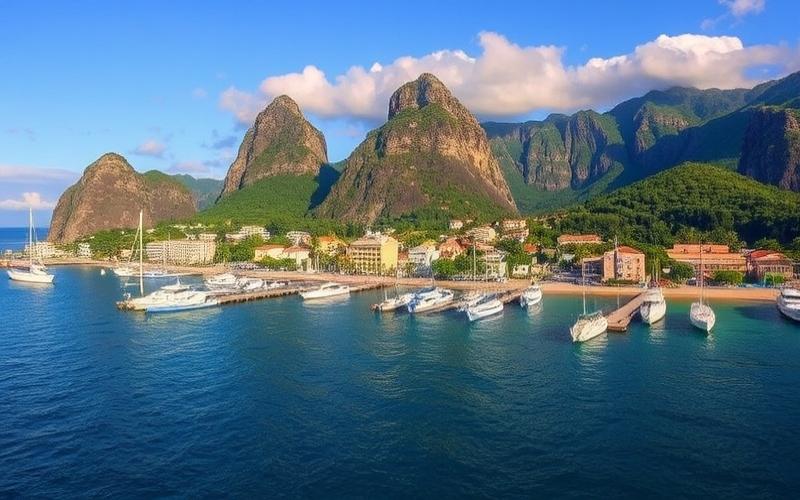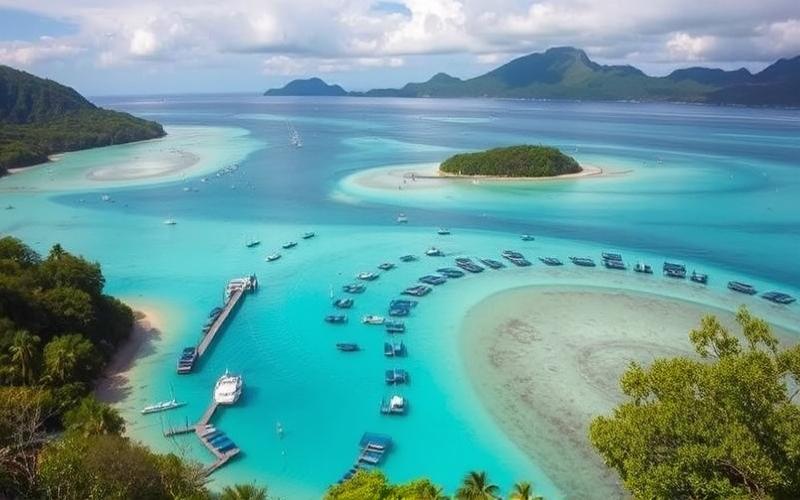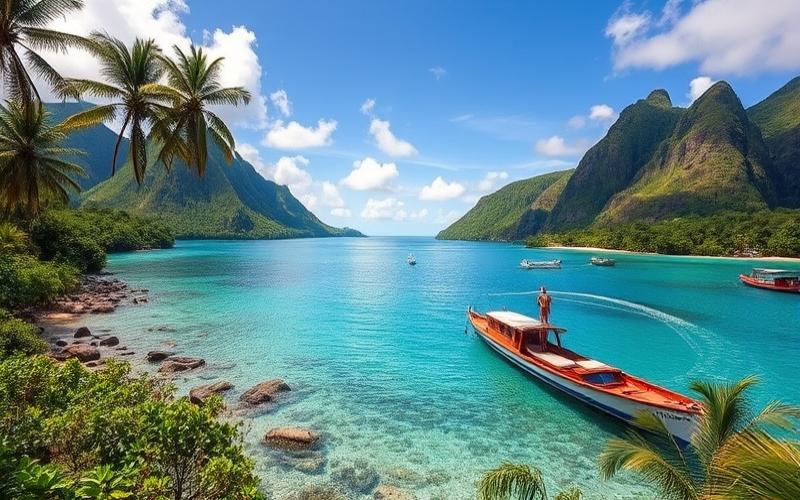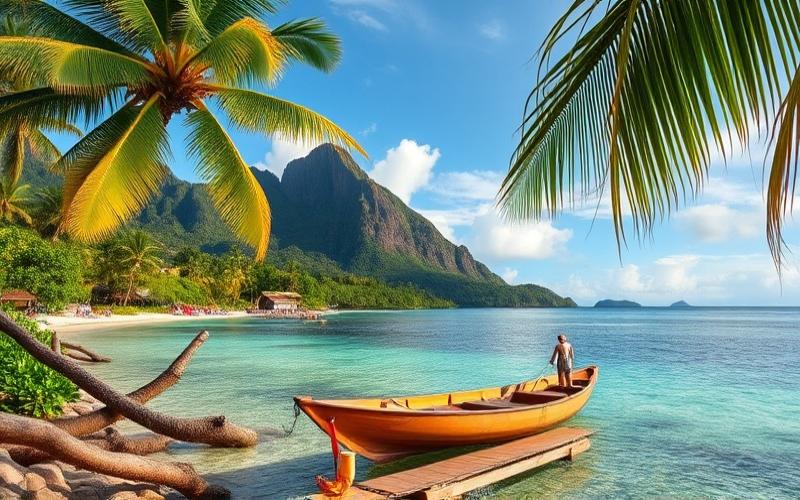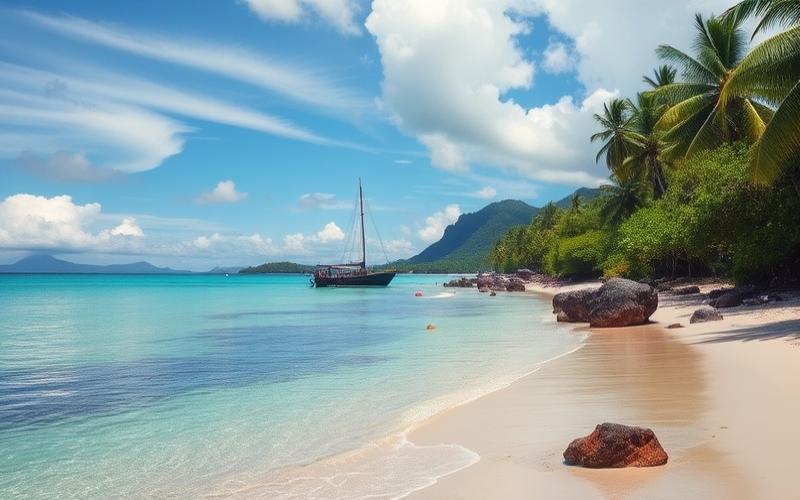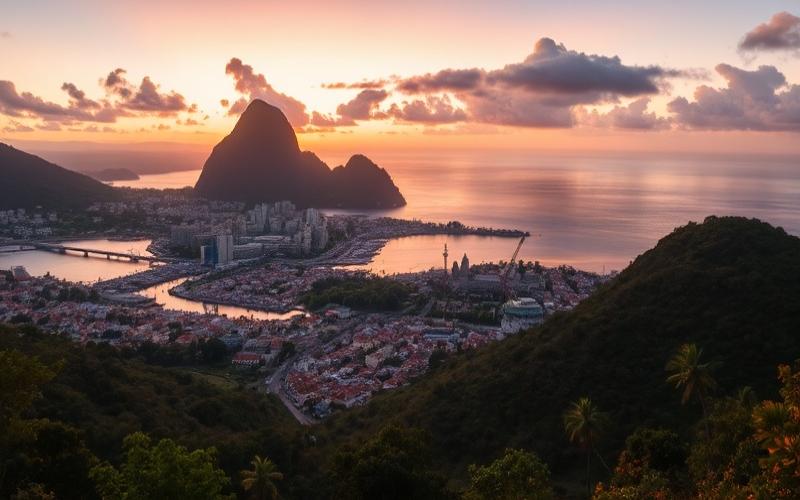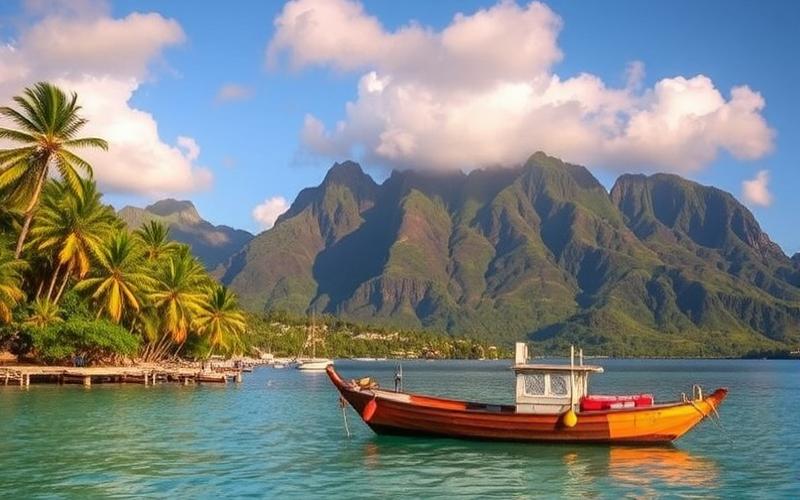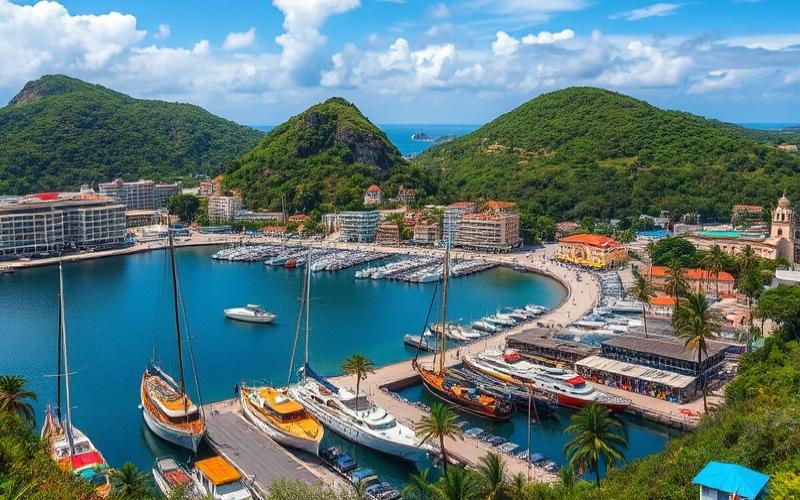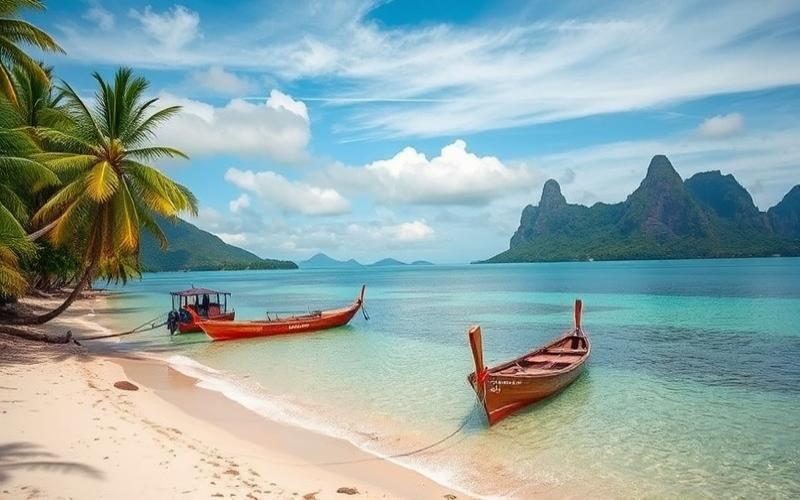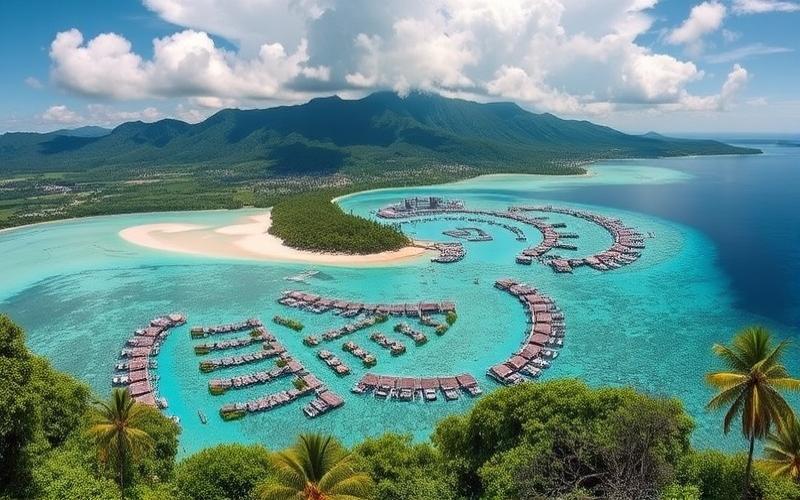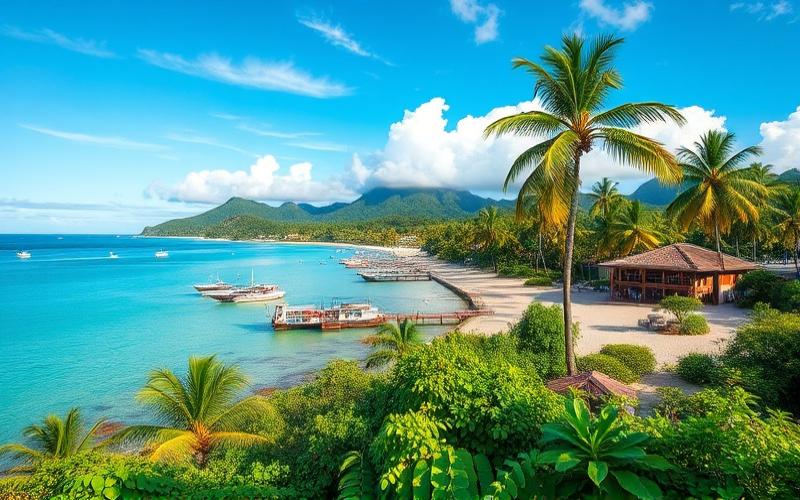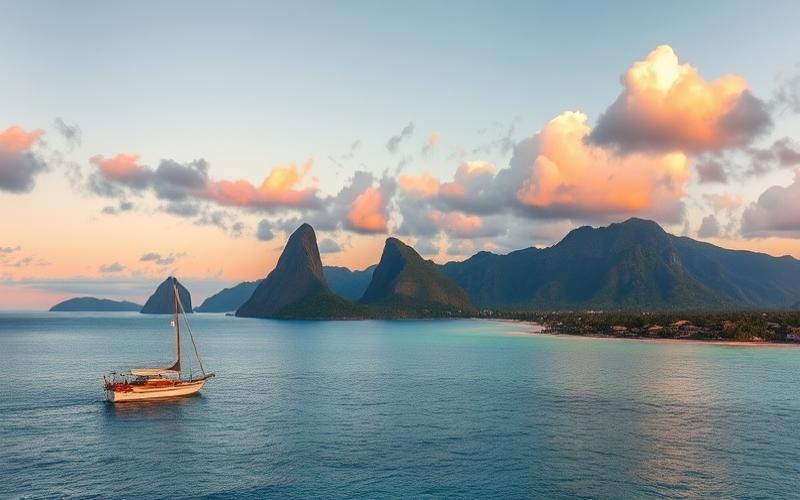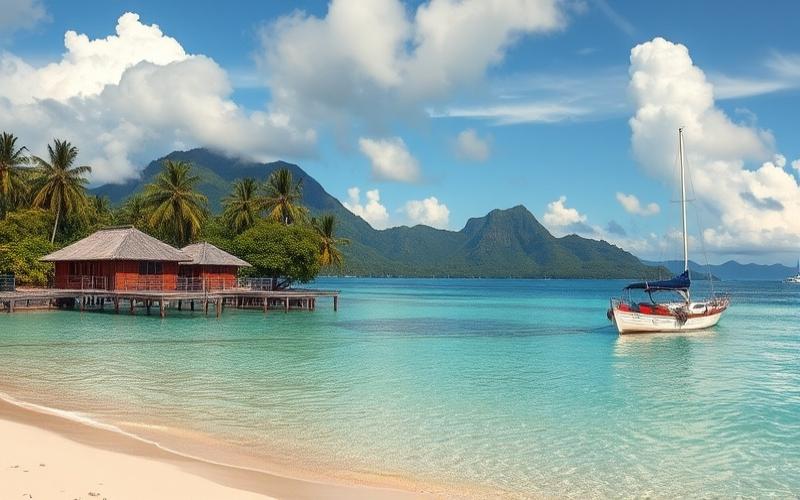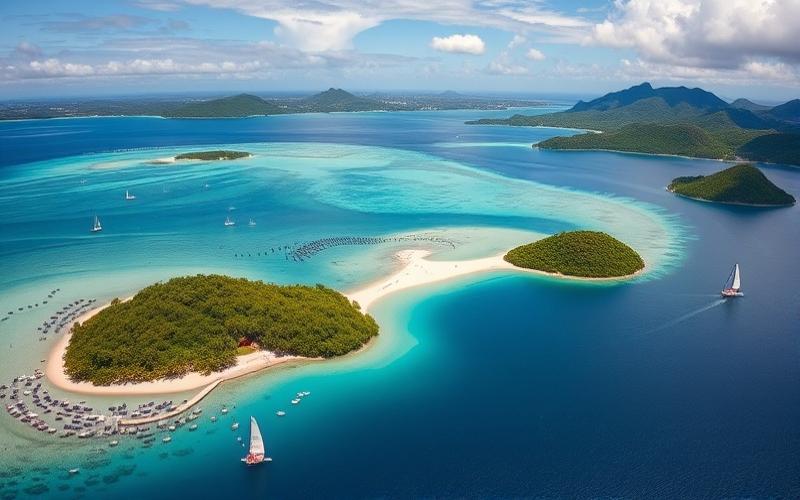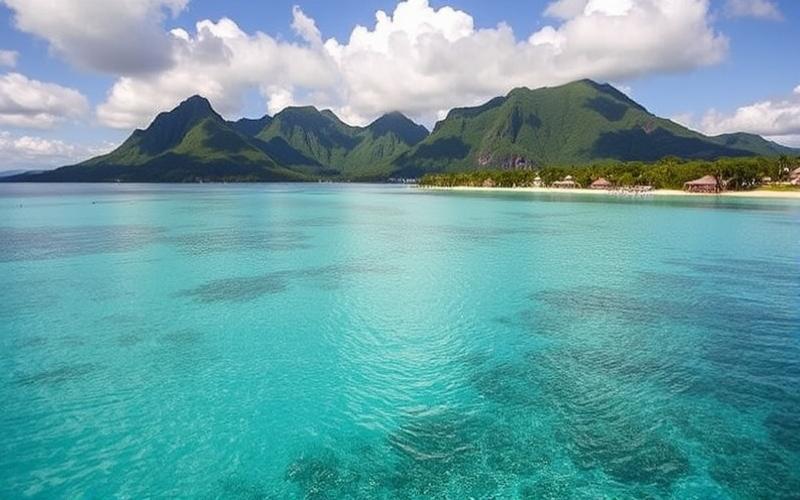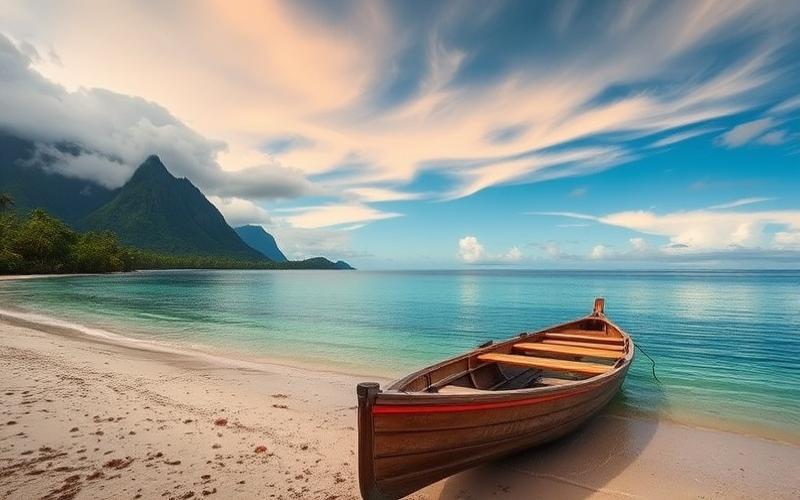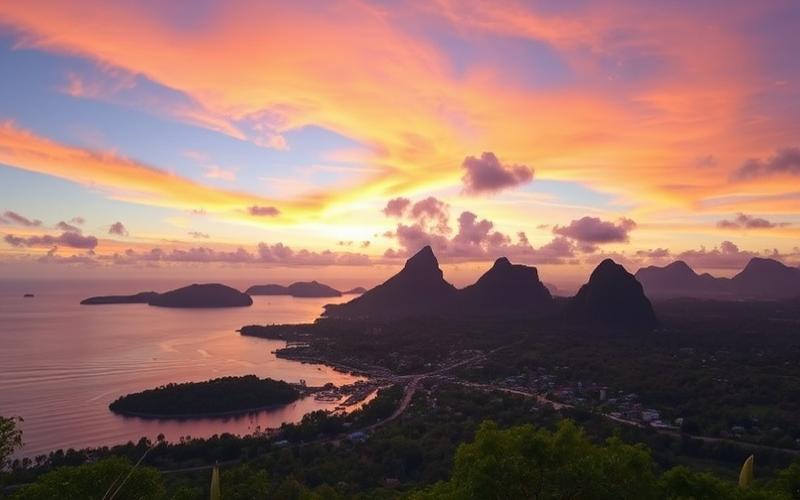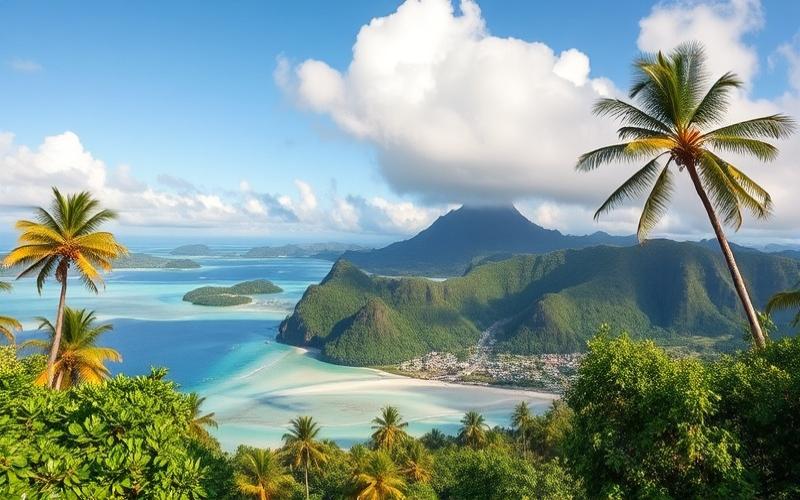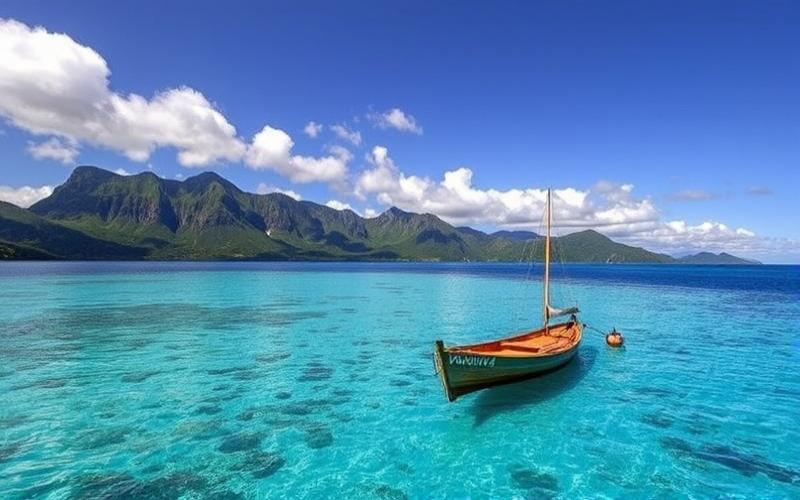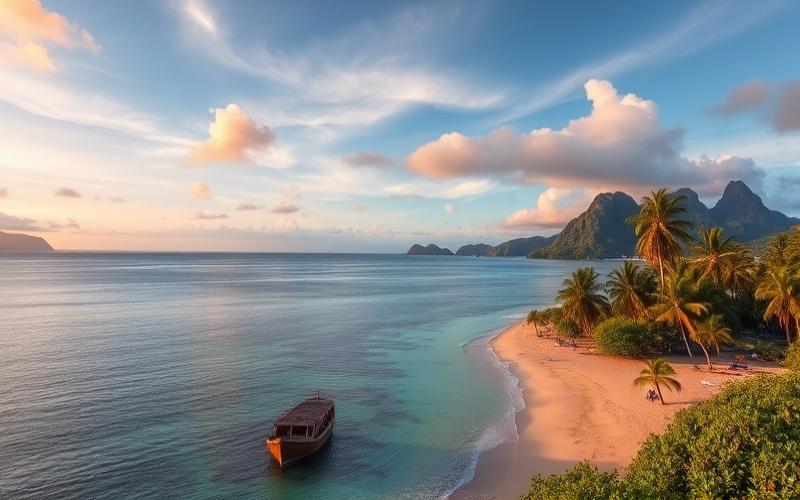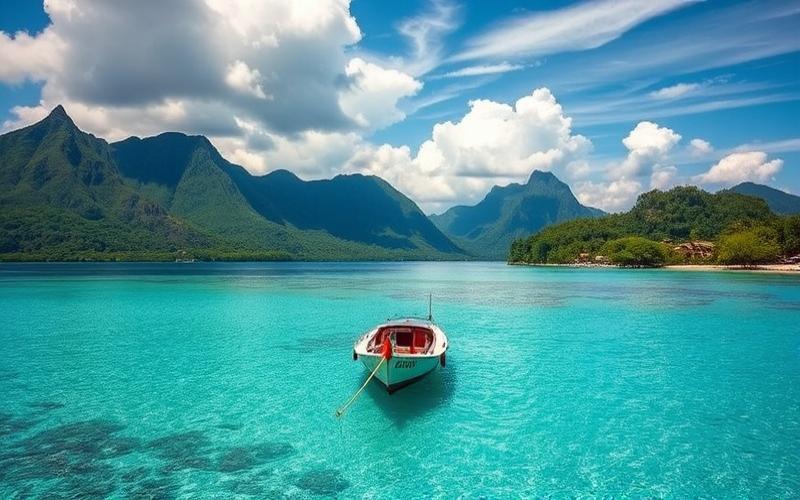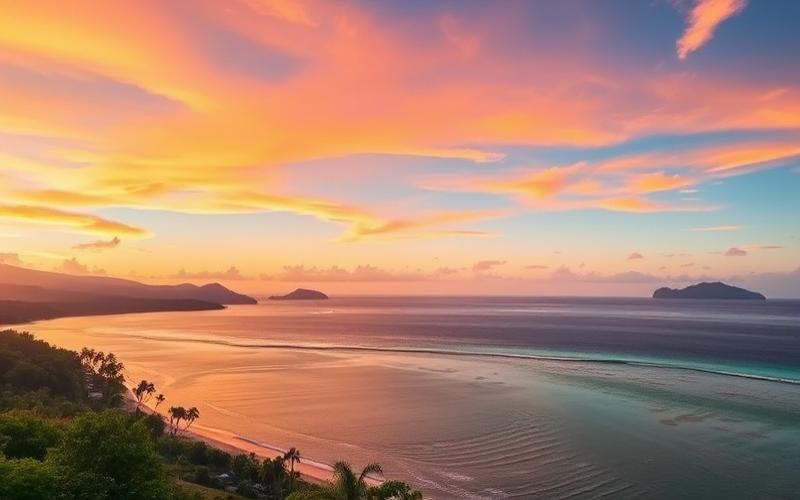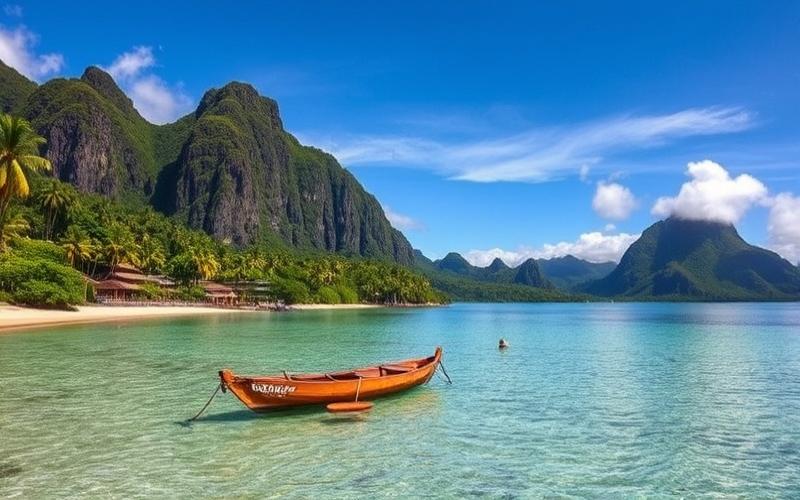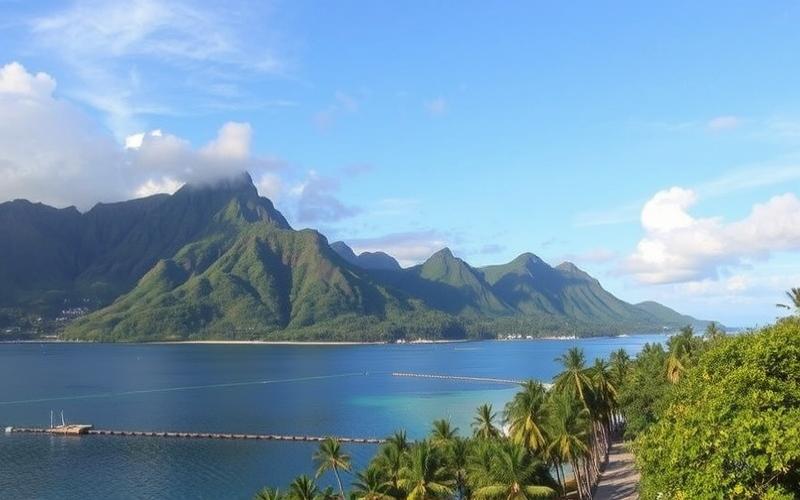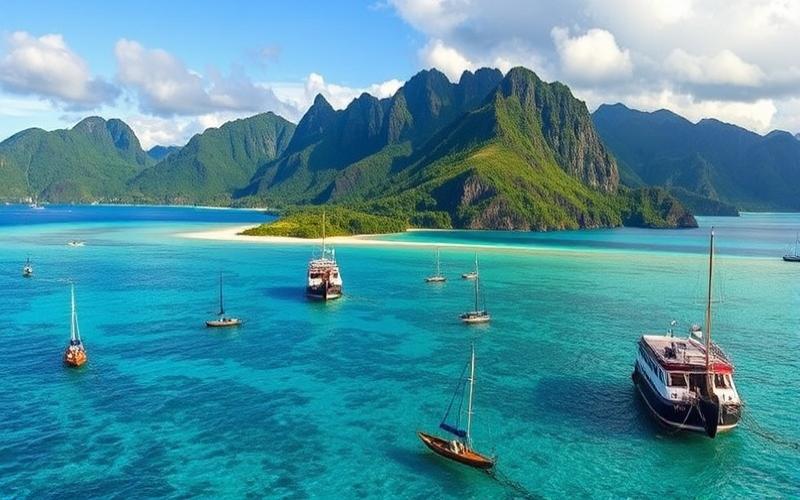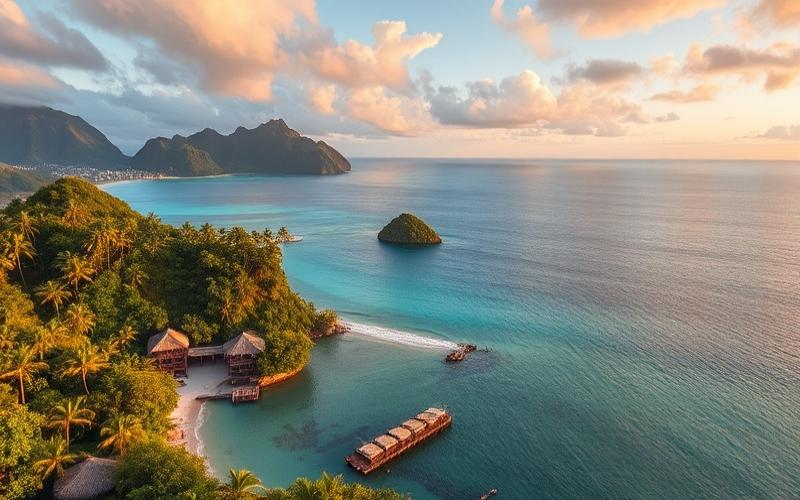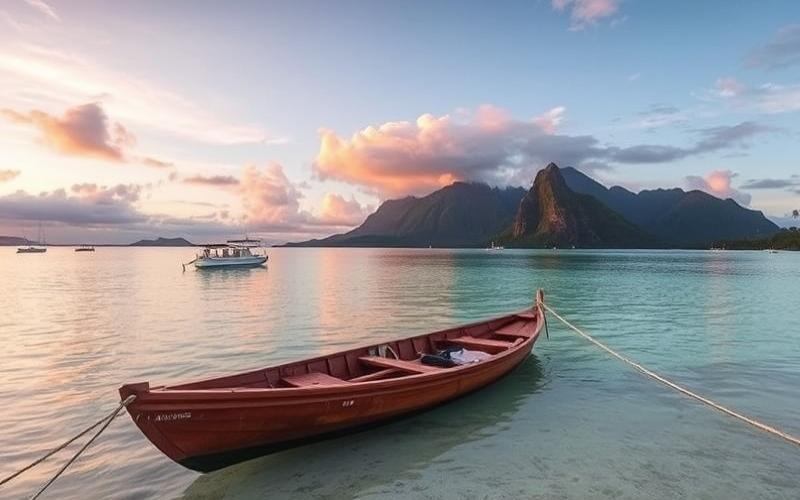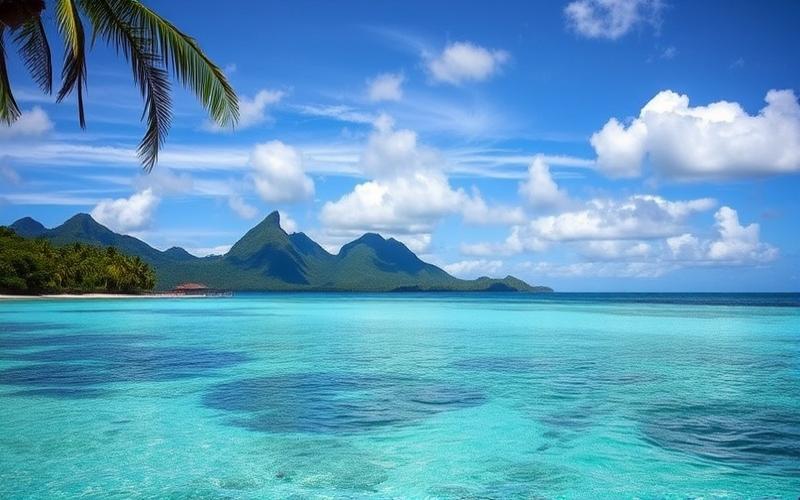
 Published on and written by Cyril Jarnias
Published on and written by Cyril Jarnias
Nestled in the heart of the South Pacific, French expatriates who have chosen to settle in Vanuatu share captivating stories of their new island life. Drawn by the idyllic tranquility of this archipelago, they reveal the challenges and joys of being property owners in such a unique environment, where Melanesian traditions and European influences coexist harmoniously.
Through their testimonies emerges a vibrant portrait of the opportunities and cultural surprises that this extraordinary life experience holds, highlighting the adaptability and adventurous spirit that drive these overseas French.
French in Vanuatu: A Successful Integration
Approximately 2,000 French citizens currently live in Vanuatu, a significant community in a country of only 250,000 inhabitants. Their integration, although generally successful, is built on varied personal experiences that are often rich in lessons.
Challenges Encountered During Integration:
- The initial language barrier for those who don’t speak Bislama or English.
- Difficulty in forming deep connections with locals beyond simple daily exchanges (market, street).
- The persistent feeling of being perceived as a foreigner despite general acceptance.
- Adapting to cultural differences and local habits sometimes far removed from the French lifestyle.
- Constraints related to island life (limited internet connection, relative isolation).
Advantages and Integration Levers:
- Ease of fitting into society thanks to the friendliness of Ni-Vanuatu and their openness toward expatriates.
- Quick access to French-speaking networks that provide important moral support and shared experiences.
- Spontaneous or organized participation in local events (festivals, markets), fostering authentic encounters.
| Challenges | Advantages |
|---|---|
| Language barrier | Openness of Ni-Vanuatu |
| Difficulty with deep connections | Dynamic French-speaking networks |
| Feeling of foreignness | Involvement in local activities |
| Different habits | Enriching cultural discovery |
Testimonials & Notable Personal Stories:
“I tend to hang out with my compatriots because we can talk more easily… But when I go eat at the Port Vila market, I laugh with the mothers serving… I’m starting to speak the local language well, but there will always be something that makes me a foreigner. This forces you to question yourself, and ultimately, so much the better!”
Another expatriate recounts how his arrival was destabilizing: after a difficult period linked to the abrupt change in professional and personal landmarks (“I had the word ‘Vanuatu’ stuck in my throat”), he chose adaptation: curiosity for the unknown, openness to the unique opportunities offered by this new environment.
Lifestyles & Community Participation:
- Many get involved in associative or educational activities: bilingual French-Bislama/English tutoring; organizing cultural events blending French and Vanuatuan traditions.
- Occasional commitments during frequent natural disasters (cyclones) through collections or logistical mutual aid between French and local communities.
Specific Initiatives Fostering Integration:
- Regular organization by some French expatriates of Franco-Vanuatuan culinary workshops allowing gastronomic exchange and mutual cultural transmission;
- Creation or active participation in local sports clubs where both French and Ni-Vanuatu share their passions;
- Volunteer contributions to local associations working particularly in education or health.
Impact on Their Cultural Perception:
The Vanuatuan experience often disrupts initial perceptions. Many emphasize that they leave transformed by this immersion:
“You learn a lot about yourself here… Your perspective changes on what ‘the essential’ is, the relationship with time is different – less pressing – just like that between generations.”
Thus, the French in Vanuatu succeed in their integration through an open posture made of mutual respect, sincere curiosity toward others – while knowing to remain humble about their real place in this warm island society that is aware of the transient nature of foreigners.
Good to Know:
French expatriates in Vanuatu often highlight the warmth and friendliness of the inhabitants as a key factor in their successful integration. They testify to the importance of actively participating in the local community, particularly through cultural events and volunteer activities, which has facilitated building strong intercultural relationships. For example, some have joined local environmental protection associations, bringing their expertise while immersing themselves in indigenous knowledge. Mastering elements of the Bislama language is also seen as a major asset to better understand and adapt to Vanuatuan culture. Moreover, several expatriates have contributed to community initiatives, such as organizing cooking classes or art workshops, strengthening ties between cultures. Respect for local customs and open-mindedness prove essential to becoming an appreciated and integrated member of Vanuatuan society, thus transforming the expatriate experience into an adventure enriching both personally and culturally.
Living in Paradise: Expatriate Testimonials
Testimonial from Claire, 38, Former Executive in Lyon
Claire chose to settle in Vanuatu after a tourist stay that transformed her vision of daily life. Seduced by the lush nature, human warmth, and absence of urban stress, she and her partner decided to acquire a small house on the outskirts of Port-Vila.
“Here, human relationships are sincere and warm. I was touched by the deep sense of community: no one is ever left alone facing their difficulties. It’s not like in France where everyone lives in their own bubble.”
The first months were marked by unexpected challenges:
Daily life:
Anecdote About Local Life
Claire mentions a customary celebration organized upon their arrival: the whole village was invited, each bringing a dish or symbolic gift. This welcome illustrates according to her “an unparalleled community spirit.”
Real Estate Experience
Becoming a property owner in Vanuatu offers certain advantages:
But also specific difficulties:
| Advantages | Difficulties |
|---|---|
| Attractive prices | Long and sometimes opaque procedures |
| Exceptional natural setting | Need to navigate customary law |
| Welcoming community | Complex maintenance (humid climate) |
Advice for Future Expatriates
Claire insists on a few essential points:
Testimonial from Arnaud, 52, Restaurateur
Arnaud initially came to open a restaurant specializing in Franco-Ni-Vanuatu fusion cuisine. Attracted by the tourist potential but also tired of “French administrative heaviness,” he quickly appreciates certain local facilities (fewer taxes), but also discovers that:
Daily management differs radically:
He also emphasizes the importance of the wantok concept – these solidarity networks based on origin or language – which heavily condition business partnerships.
“I had to relearn how to work differently: here, there’s no use rushing things… You discuss over a kava before any negotiation!”
For him as for Claire:
Noticed Advantages
Frequent Difficulties
- Invest in language learning (mainly Bislama).
- Arm yourself with patience facing administrative and professional delays.
- Come without preconceived ideas; each experience will heavily depend on the encountered local context.
⭑ Living in Vanuatu is neither easier nor harder than in France: it’s simply radically different. ⭑
Good to Know:
In Vanuatu, French expatriates testify to their paradisiacal life marked by human warmth and stunning nature, often citing the desire to slow down their pace of life as the main reason for their settlement. However, integration requires patience and adaptation, due to cultural differences and a local rhythm much more relaxed than in France. As property owners, these expatriates face challenges like navigating a complex land legal system and maintaining properties in a tropical climate, but appreciate in return the rare possibility to truly live in contact with nature. For example, one recounts how he traded his Parisian habits for sunrise fishing mornings, acknowledging the simplicity and authenticity of his island daily life. Would he recommend the move? Yes, but with an open mind and a willingness to adapt expectations to the realities of the island dream.
Becoming a Property Owner: Tips and Experiences
To become a property owner in Vanuatu, it is essential to thoroughly inform yourself about the local market, understand administrative specificities, and prepare for a significant cultural change.
Practical Tips for Real Estate Purchase
- Contact agencies specialized in expatriate real estate or consult platforms like Properstar or Expat.com to spot available properties.
- Meticulously compare financing offers: some local banks grant loans to non-residents but often require more guarantees than for locals. Many expatriates ultimately opt for self-financing or solicit an international bank.
- Get accompanied by an international financing broker and a lawyer specialized in Vanuatuan land law, as land ownership can be complex.
- Check if the desired property is eligible for certain schemes: for example, only certain types of real estate investments allow obtaining a long-term investor visa.
Types of Properties Popular Among Expatriates
| Property Type | Sought-after Assets |
|---|---|
| Seaside house | Exceptional view, beach access |
| Plantation (cocoa/coffee) | Agricultural investment/leisure |
| Villas with pool | Modern comfort |
Oceanfront houses are particularly sought after for their idyllic setting and rental potential. Others prefer to invest in a plantation (cocoa, coffee) to combine agricultural yield and peaceful life.
Frequent Administrative Challenges
- Legislation prohibits full land ownership: it’s always a leasehold, generally for 50 to 75 years. Thus, carefully examine the remaining lease duration when purchasing.
- Notarial procedures can be slow; it’s frequent for deadlines to extend over several months.
- Obtaining the investor visa sometimes requires that the investment be active (tourist/agricultural business), not simply residential.
Attractive Tax Opportunities
Vanuatu levies no income tax, nor capital gains tax or inheritance duties. This very light taxation attracts many expatriates seeking tax optimization and administrative simplicity. However, anticipate any future regulatory evolution.
Personal Experiences & Cultural Adaptation
“We were warmly welcomed by our Ni-Vanuatu neighbors who helped us understand their customs… But we had to learn patience facing administrative slowness!”
Many French testify to having felt strong solidarity within local communities. Integration involves respecting Melanesian traditions: participating in village festivities (“nakamal”), adopting less direct communication than in mainland France, and accepting a more relaxed daily rhythm.
List of Essential Cultural Adjustments:
- Respect “Vanuatu time”: avoid any rush
- Show sincere interest in local culture
- Accept that some procedures take longer
Key Recommendations
- Explore multiple real estate channels before any commitment: specialized expatriate/French-speaking agencies, dedicated forums…
- Systematically negotiate prices – they are rarely fixed initially.
- Always consult a local lawyer before signing: each island may have its legal specificities regarding customary land/leasehold.
- Plan an exploratory period on-site to meet potential sellers and surrounding communities before any final decision.
Familiarizing yourself with the local legal system is not only advised but indispensable, particularly concerning:
- The exact type of land title
- Obligations toward the local customary community
- Restrictions related to protected areas
By following these practical tips – while maintaining patience and cultural openness – becoming a property owner in Vanuatu becomes an enriching adventure as much as a solid patrimonial investment.
Good to Know:
Buying a property in Vanuatu means diving into an adventure offering both challenges and opportunities. French expatriates recount that seaside houses and plantations are sought after, seduced by the idyllic setting and favorable climate. However, administrative procedures can be complex, hence the importance of informing yourself about the local legal system and getting accompanied to understand the subtleties of land laws. Good to know: the country offers interesting tax advantages, thus reducing acquisition costs. The local community is generally welcoming but requires mutual respect and cultural adaptation, facilitating the integration of newcomers. When searching for properties, using reliable real estate agents can simplify price negotiation, while guaranteeing a comprehensive understanding of contractual terms. Expatriate advice specifies that a prepared and informed approach is essential to succeed in your settlement.
Disclaimer: The information provided on this website is for informational purposes only and does not constitute financial, legal, or professional advice. We encourage you to consult qualified experts before making any investment, real estate, or expatriation decisions. Although we strive to maintain up-to-date and accurate information, we do not guarantee the completeness, accuracy, or timeliness of the proposed content. As investment and expatriation involve risks, we disclaim any liability for potential losses or damages arising from the use of this site. Your use of this site confirms your acceptance of these terms and your understanding of the associated risks.

